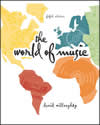 |
1 |  | 
Chopin is best known for his |
|  | A) | music dramas. |
|  | B) | Viennese lyricism. |
|  | C) | symphonies, concertos, and other miniatures. |
|  | D) | etudes, ballades, preludes, mazurkas, and other miniatures. |
 |
 |
2 |  | 
The patronage system during the Romantic period was primarily the |
|  | A) | church. |
|  | B) | aristocracy. |
|  | C) | the public. |
|  | D) | the universities. |
 |
 |
3 |  | 
Nationalism in classical music composition means |
|  | A) | incorporating folk and popular music in a piece of classical music. |
|  | B) | referring to the patriotism, religion, or culture of a nation or region. |
|  | C) | musically describing a historical place or event important to a nation or region. |
|  | D) | all of the above. |
 |
 |
4 |  | 
A miniature is a |
|  | A) | character piece. |
|  | B) | lied. |
|  | C) | short solo piano piece. |
|  | D) | all of the above. |
 |
 |
5 |  | 
A genre new to the Romantic period is the |
|  | A) | symphonic poem. |
|  | B) | overture. |
|  | C) | Requiem. |
|  | D) | Fantasy. |
 |
 |
6 |  | 
Schubert is best known for his |
|  | A) | character pieces. |
|  | B) | lieder |
|  | C) | ballets. |
|  | D) | symphonic poems. |
 |
 |
7 |  | 
Tchaikovsky is best known for his |
|  | A) | symphonies and ballets. |
|  | B) | symphonies and opera. |
|  | C) | ballets and character pieces. |
|  | D) | lieder. |
 |
 |
8 |  | 
Verdi is best known for his |
|  | A) | ballets. |
|  | B) | symphonies. |
|  | C) | operas. |
|  | D) | all of the above. |
 |
 |
9 |  | 
Wagner is best known for his |
|  | A) | ballets. |
|  | B) | symphonies. |
|  | C) | music dramas. |
|  | D) | all of the above. |
 |
 |
10 |  | 
Libretto refers to |
|  | A) | dramatic action. |
|  | B) | the story of an opera. |
|  | C) | artistic freedom. |
|  | D) | none of the above. |
 |
 |
11 |  | 
Schubert composed around __________ lieder. |
|  | A) | 30 |
|  | B) | 75 |
|  | C) | 150 |
|  | D) | 600 |
 |
 |
12 |  | 
Who wrote The Nutcracker? |
|  | A) | Brahms |
|  | B) | Tchaikovsky |
|  | C) | Verdi |
|  | D) | Mendelssohn |
 |
 |
13 |  | 
Who wrote Aida? |
|  | A) | Brahms |
|  | B) | Tchaikovsky |
|  | C) | Verdi |
|  | D) | Mendelssohn |
 |
 |
14 |  | 
Who wrote Romeo and Juliet? |
|  | A) | Brahms |
|  | B) | Tchaikovsky |
|  | C) | Verdi |
|  | D) | Mendelssohn |
 |
 |
15 |  | 
Virtuosity is not yet a major factor in western classical music. |
|  | A) | TRUE |
|  | B) | FALSE |
 |
 |
16 |  | 
Chromaticism is not yet a major factor in classical composition. |
|  | A) | TRUE |
|  | B) | FALSE |
 |
 |
17 |  | 
Program music is important; absolute music is not. |
|  | A) | TRUE |
|  | B) | FALSE |
 |
 |
18 |  | 
Rhythm is generally more complex and irregular than rhythm in the Classic period. |
|  | A) | TRUE |
|  | B) | FALSE |
 |
 |
19 |  | 
The orchestra of the Baroque period was typically less than forty, the Classic orchestra perhaps seventy, and the symphony orchestra of the late Romantic period often a hundred or more musicians. |
|  | A) | TRUE |
|  | B) | FALSE |
 |
 |
20 |  | 
A symphonic poem is a symphonic work that tells a story or portrays an image. |
|  | A) | TRUE |
|  | B) | FALSE |
 |



 2003 McGraw-Hill Higher Education
2003 McGraw-Hill Higher Education